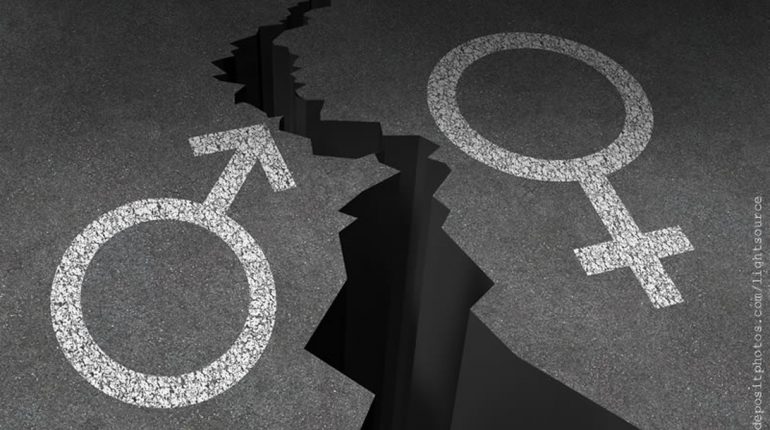The story of leadership within Protestant churches across Ireland has long been dominated by male figures. Yet, beneath the surface of tradition, a significant and transformative narrative has been unfolding – the gradual but undeniable emergence of women into positions of spiritual authority and guidance. This journey is complex, marked by pioneering breakthroughs, persistent challenges, and a diversity of experiences across denominations. As someone deeply rooted in the Protestant tradition here, I have observed this evolution with keen interest, recognizing its profound implications for the future of our churches. Understanding this evolving tapestry requires looking at historical milestones, the lived realities of women in ministry, the theological currents they navigate, and their growing influence on the wider fabric of Irish life.
Breaking Ground Pioneers and Policy Changes
Key Denominational Milestones
The landscape began to shift significantly in the latter half of the 20th century as official church policies started opening doors previously closed to women. After considerable debate, the Presbyterian Church in Ireland (PCI) approved the eligibility of women for ministry in 1973. This led to the landmark ordination of Rev Dr Ruth Patterson in 1976, a true pioneer who paved the way for others. Similarly, the Non-Subscribing Presbyterian Church of Ireland (a denomination which generally emphasizes individual conscience over compulsory subscription to creeds) celebrated a significant first with Rev. Lena Cockcroft’s ordination in 1982, marking four decades of female ministry in that tradition. The Church of Ireland formally authorized women’s ministry in 1988, a decision whose impact was powerfully symbolized in 2013 with the landmark appointment of Reverend Pat Storey as the first female Anglican bishop in Ireland and the UK. The Methodist Church in Ireland has also shown a strong commitment to female leadership, notably electing Rev Dr Heather Morris as its President in 2013. These represent significant strides, though it’s crucial to acknowledge the differing theological interpretations and historical trajectories across denominations. Some bodies, like the Free Presbyterian Church of Ulster, maintain a traditional stance, currently having no female ministers.
Reality Versus Policy
These policy changes and pioneering appointments, while symbolically important, haven’t always translated into rapid integration on the ground. Within the PCI, for instance, despite over four decades of ordaining women, they remain a small fraction of the clergy. Out of approximately 330 ministers, only around 30 are women; detailed figures suggest about 15 are currently serving in active roles like congregations, chaplaincies, or specified ministries, while another 15 have retired from active service. The journey of figures like Rev. Mairisine Stanfield illustrates this ongoing process. Becoming the first female minister in Down District was one milestone, but her subsequent calling as the first woman to lead a second, larger PCI church decades later highlights the gradual nature of breaking the ‘glass ceiling’. While the Church of Ireland shows higher representation, with women making up around 21% of clergy in Northern Ireland and 25% in the Republic of Ireland, the overall picture across Irish Protestantism is one of progress intertwined with persistent underrepresentation in many leadership spheres.
The Call to Serve Amidst Complexity
A Divine Calling and Diverse Roles
Despite the hurdles, a powerful common thread unites women in ministry across denominations: an undeniable sense of divine calling. A significant research project, “Women in Ministry in Ireland,” and personal stories gathered in resources like Dr. Anne Francis’s book, “Called: Women in Ministry in Ireland,” consistently reveal this deep conviction as the bedrock of their service. Women describe this not merely as a career choice but as a profound vocation, often expressing joy and a sense of privilege in their work, with studies showing none regret their path. They engage in a remarkably wide array of roles – serving as priests, deacons, elders, youth or family pastors, worship leaders, parish leaders, spiritual guides, chaplains in hospitals and schools, educators, and mentors, as highlighted in a recent study involving Christian women across Ireland. Their dedication is clear; they view these diverse activities as integral parts of ‘God’s work’.
Navigating Gender Specific Challenges
However, this calling is frequently lived out amidst significant gender-specific challenges. Research confirms what many observe anecdotally: sexism, theological objections manifesting as personal opposition (such as congregants leaving or refusing their ministry at weddings or funerals), and feelings of exclusion or being undervalued are realities for a majority of women ministers. This resonates with experiences within the Seventh-day Adventist Church, where women pastors reported a lack of full affirmation even from some male colleagues, suggesting attitudinal barriers persist alongside, or sometimes instead of, theological ones. Many women grapple with inheriting what they perceive as a ‘male model’ of ministry, characterized by demanding, unpredictable hours and expectations that can clash heavily with family responsibilities. Balancing the often all-consuming nature of ministry with roles as wives and mothers emerges as a consistent struggle, leading to a desire for more flexible and diverse expressions of leadership that better utilize their unique gifts and align with their realities.
The Importance of Support Systems
In navigating these complexities, support systems prove absolutely crucial. Research highlights the vital role played by supportive husbands, families, colleagues, and understanding church members. Beyond these personal networks, structured support within denominations can be invaluable. The proactive meeting convened by Adventist leaders in Ireland and the UK specifically to affirm and listen to their women ministers, despite challenging wider church decisions, serves as one example. Similarly, the long history and dedicated work of organisations like Baptist Women within the Irish Baptist Church demonstrate a sustained effort to encourage, equip, and foster fellowship among women. Originally formed as a Women’s Auxiliary in 1929, it has evolved significantly, now actively working to help women develop and utilize their gifts through local ministries, promoting prayer, theological equipping, and community outreach. These formal and informal networks provide essential encouragement, solidarity, and practical support.
Navigating Doctrine and Tradition
Theological Divides Complementarianism vs Egalitarianism
Underpinning much of the discussion about women’s leadership are deep-seated theological questions and varying interpretations of scripture. A key tension exists between complementarian views, which emphasize distinct but complementary roles for men and women, often reserving certain leadership or teaching functions for men, and egalitarian perspectives, which advocate for equal roles and opportunities for both genders in all aspects of church life. Debates within denominations like the Presbyterian Church often reference specific biblical passages, such as the Apostle Paul’s teachings in 1 Timothy or Corinthians, or the fact that Jesus chose twelve male disciples, to argue against women holding certain leadership positions. While these debates continue, it’s important to acknowledge the official stances of denominations like the PCI and Church of Ireland, which affirm the ordination of both men and women based on their own theological discernment. Exploring wider theological resources and discussions reveals that these conversations are part of a global dialogue within Protestantism.
Impact of Denominational Stance
The official position and prevailing culture of a denomination significantly shape the experience of its female ministers. Studies, like Dr. Anne Francis’s work, indicate that women generally report greater satisfaction and flourishing in denominations where structures offer equal access to all roles. Conversely, limitations on roles or church structures not adapted to accommodate female ministers create significant challenges. Bishop Pat Storey has reflected openly on this reality. While celebrating the progress in the Church of Ireland, she acknowledges that conservative elements remain, rooted sometimes in theological conviction, but sometimes, she suggests, simply in misogyny. Her powerful call for women to play a ‘full part’ – moving beyond traditionally accepted supportive roles like ‘making the tea’ – directly confronts outdated perceptions and underscores the ongoing need for cultural shifts to match policy changes.
Addressing Barriers Through Education
Overcoming these theological and cultural barriers often requires intentional effort within the church community. The experience within the Adventist Church highlighted a crucial need for comprehensive education. Leaders and ministers identified the importance of educating the wider church membership to foster a deeper, more nuanced understanding of scripture regarding women’s roles in ministry. This education aims to promote inclusivity and mutual support between male and female ministers, countering potential misinformation spread through various channels. Furthermore, they recognised that the perception of discrimination, particularly among younger generations who see the church’s stance as unjust, poses a significant challenge to the church’s future relevance and growth. This points to a broader need across denominations for open dialogue, accessible biblical study, and proactive leadership that actively champions the calling and gifts of women.
Weaving Faith into Irish Life and Shaping the Future
Community Engagement and Social Impact
The contributions of Protestant women in leadership extend far beyond the pulpit or church committee meeting. Many are deeply embedded in their local communities, demonstrating a practical, lived-out faith that addresses tangible social needs. Rev. Mairisine Stanfield’s instrumental role in establishing ‘The Hub,’ an advice and counselling centre, and ‘The Edge’ youth project in Ballynahinch, both born out of responses to local crises like a spate of suicides, is a powerful example. Her church’s involvement in a Food Bank further illustrates this commitment. Research confirms this trend, highlighting women ministers’ empathy with the excluded and their ability to bring about positive change for people on the margins. This outward-facing ministry enriches not only their congregations but also the wider fabric of Irish society.
Reshaping Ministry Models and Historical Resonance
The increasing presence and influence of women inevitably challenge and reshape traditional models of ministry. Their diverse perspectives, life experiences, and spiritual gifts bring new dimensions to pastoral care, preaching styles, leadership approaches, and church governance. As the Woolf Institute project pondered, actively fostering women’s ministries may be crucial for the overall flourishing and health of churches. Interestingly, looking deeper into Irish history reveals potential resonances. The veneration of ancient spiritual figures like St. Brigid, who is honoured even within denominations such as the Church of Ireland despite her pre-Reformation roots, hints at a long, albeit sometimes submerged, history of recognizing female spiritual authority and influence on this island. This historical strand, acknowledging powerful female figures of faith, perhaps finds an echo in the contemporary emergence of women into formal leadership roles within Irish Protestantism.
The Ongoing Journey
The journey of Protestant women into leadership roles in Ireland is undeniably dynamic but far from complete. It remains a story marked by courage, deep faithfulness, and considerable resilience in the face of ongoing theological debate, cultural resistance, and societal expectations. Their growing presence is not merely a matter of representation or fairness, though those are important; it is fundamentally about the health, vitality, and future witness of the church. By fully embracing the diverse gifts, callings, and leadership styles of women, Protestant denominations across Ireland can enrich their ministry, deepen their community engagement, and more authentically reflect the breadth and depth of God’s work in the world. Continuing to listen attentively to their voices, seeking to understand their unique experiences, and actively working to dismantle the barriers they still face is essential for weaving a stronger, more vibrant, and more complete tapestry for the future of the Protestant faith on this island.



